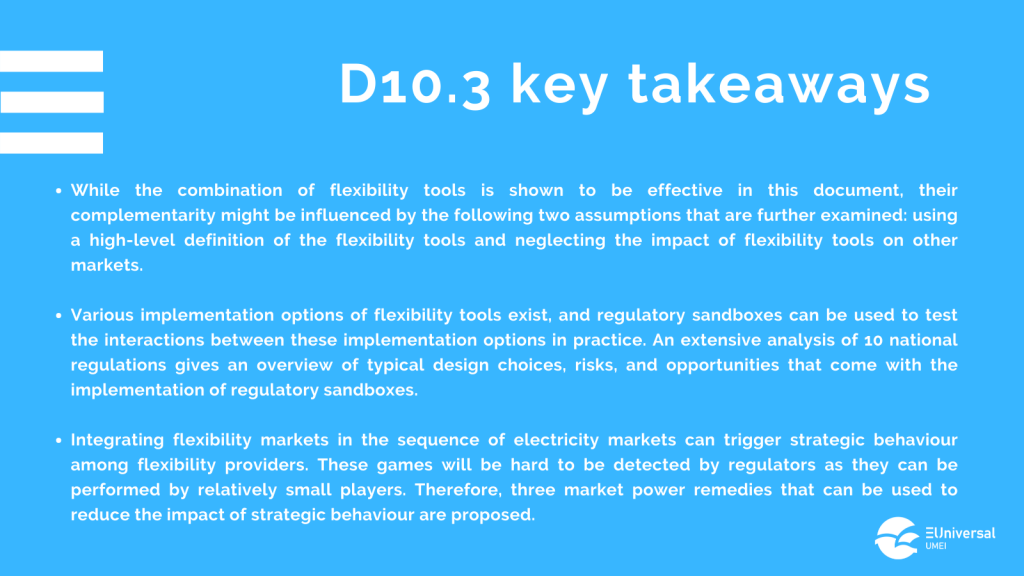The EUniversal project, funded by the European Union, aims to develop a universal approach on the use of flexibility by Distribution System Operators (DSO) and their interaction with the new flexibility markets, enabled through the development of the concept of the Universal Market Enabling Interface (UMEI) – a unique approach to foster interoperability across Europe.
The UMEI represents an innovative, agnostic, adaptable, modular, and evolutionary approach that will be the basis for the development of new innovative services, market solutions and, above all, implementing the real mechanisms for active consumer, prosumer, and energy communities’ participation in the energy transition.
In this context, Deliverable D10.3 aims to create regulatory recommendations for flexibility options and markets.
This document consists of three main parts:
- Chapter 3 – it provides a general overview of the compatibility between six flexibility tools based on the main findings of EUniversal D5.1 and introduces two open issues of this analysis that are examined in the next chapters.
- Chapter 4 – it examines the impact of different implementation options on the compatibility between flexibility tools in two parts: 1) providing an overview of the implementation options of dynamic network tariffs, flexible connection agreements, and local flexibility markets; 2) proposing regulatory sandboxes as a solution to test these interactions.
- Chapter 5 – it focuses on one of the open issues of the interaction of flexibility tools on other markets, namely the integration of local flexibility markets in the existing market sequence, which raises market power concerns, in two parts: 1) developing a bi-level optimisation model to illustrate the magnitude of strategic behaviour in flexibility market; 2) proposing three market power remedies that might serve as a solution to reduce strategic behaviour.
The outcomes of this deliverable can serve several other purposes:
- The findings on the combination of flexibility tools in Chapter 3 can give regulatory recommendations on the compatibility between these tools. The research questions identified in this chapter can serve as inspiration for future research and H2020 projects.
- The overview of the implementation options of distribution network tariffs, flexible connection agreements and local flexibility markets in Chapter 4 can inspire the design of flexibility mechanisms, the use cases of regulatory sandboxes, and future research and H2020 projects.
- The results on strategic behaviour in flexibility markets of Chapter 5 might be of practical relevance for market surveillance and the debate on integrating local flexibility markets in the current sequence of electricity markets in Europe. The overview of market power remedies in this chapter can serve as a starting point for regulators to implement or improve schemes to reduce market power concerns.

This deliverable was jointly produced by VLERICK, VITO, COMILLAS, E.DSO, EASE AND E-REDES.








